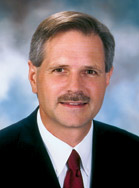 The Clean Fuels Development Coalition, the Clean Fuels Foundation, and the National Ethanol Vehicle Coalition have teamed with the Nebraska Ethanol Board and received a grant from the Nebraska Department of Economic Development and the Nebraska Rural Development Commission that was announced here today.
The Clean Fuels Development Coalition, the Clean Fuels Foundation, and the National Ethanol Vehicle Coalition have teamed with the Nebraska Ethanol Board and received a grant from the Nebraska Department of Economic Development and the Nebraska Rural Development Commission that was announced here today.
 CFDC and NEVC will work with ethanol producers and E85 distributors and marketers to conduct a series of workshops covering a variety of subjects that will improve opportunities for direct E85 marketing. As the prime recipient of the grant, the Nebraska Ethanol Board will administer the project. One-day workshops, expected to begin in the second quarter of the year, will cover EPA storage requirements, fuel tax incentives, ethanol safety and handling training, and E85 brand awareness.
CFDC and NEVC will work with ethanol producers and E85 distributors and marketers to conduct a series of workshops covering a variety of subjects that will improve opportunities for direct E85 marketing. As the prime recipient of the grant, the Nebraska Ethanol Board will administer the project. One-day workshops, expected to begin in the second quarter of the year, will cover EPA storage requirements, fuel tax incentives, ethanol safety and handling training, and E85 brand awareness.



 U.S. Department of Agriculture (USDA) Acting Secretary Chuck Conner and U.S. Department of Energy (DOE) Secretary Samuel Bodman today announced the appointment of six new members and the reappointment of seven members to serve on its Biomass Research and Development Technical Advisory Committee for a term of three years. The Committee was established by the Biomass Research and Development Act of 2000 to assist USDA and DOE in meeting important national goals for a healthier rural economy and improved national energy security.
U.S. Department of Agriculture (USDA) Acting Secretary Chuck Conner and U.S. Department of Energy (DOE) Secretary Samuel Bodman today announced the appointment of six new members and the reappointment of seven members to serve on its Biomass Research and Development Technical Advisory Committee for a term of three years. The Committee was established by the Biomass Research and Development Act of 2000 to assist USDA and DOE in meeting important national goals for a healthier rural economy and improved national energy security.  It is easy being green this year at the
It is easy being green this year at the Nanfito was especially impressed with the Mazda Furai, which he says is an amazingly futuristic car. “Apparently E98 is the fuel of the future, because that is how they designed the car,” said Nanfito. “Our logo is on it, along with BP, and it is getting a lot of attention.”
Nanfito was especially impressed with the Mazda Furai, which he says is an amazingly futuristic car. “Apparently E98 is the fuel of the future, because that is how they designed the car,” said Nanfito. “Our logo is on it, along with BP, and it is getting a lot of attention.” E85, a blend of 85 percent ethanol and 15 percent gasoline, will make its appearance in 2008 as a fuel alternative in the American Le Mans Series.
E85, a blend of 85 percent ethanol and 15 percent gasoline, will make its appearance in 2008 as a fuel alternative in the American Le Mans Series. According to the
According to the  “By showcasing the capabilities of E85 ethanol before an audience of knowledgeable and technically astute race fans, we can demonstrate the benefits of a renewable fuel that helps to reduce dependence on petroleum, helps to reduce emissions of greenhouse gases, and helps to create greater diversity in energy supplies,” Chevrolet General Manager Ed Peper said. “Of course, performance is what counts in racing, so E85 ethanol’s higher octane rating than gasoline wasn’t overlooked by the Corvette Racing engineers.”
“By showcasing the capabilities of E85 ethanol before an audience of knowledgeable and technically astute race fans, we can demonstrate the benefits of a renewable fuel that helps to reduce dependence on petroleum, helps to reduce emissions of greenhouse gases, and helps to create greater diversity in energy supplies,” Chevrolet General Manager Ed Peper said. “Of course, performance is what counts in racing, so E85 ethanol’s higher octane rating than gasoline wasn’t overlooked by the Corvette Racing engineers.”
 “It’s a little bit of a surprise to see how much the market has rebounded,” said Dave VanderGriend, president of ICM at Colwich, one of the nation’s largest designers and builders of ethanol plants.
“It’s a little bit of a surprise to see how much the market has rebounded,” said Dave VanderGriend, president of ICM at Colwich, one of the nation’s largest designers and builders of ethanol plants. Renew, an independent brand of fuel stations based in Oshkosh, has offered E85 since the station opened on September 26, 2005. The company expects Oshkosh station customers helped save approximately 43,500 barrels of oil by choosing E85 over straight gasoline. Jay Stoflet, Director of Retail Marketing for Renew explains, “While there is no perfect solution for immediately reducing our country’s dependency on oil, E85 is a great first step that is helping make a change. These customers are really making a difference, one gallon at a time.”
Renew, an independent brand of fuel stations based in Oshkosh, has offered E85 since the station opened on September 26, 2005. The company expects Oshkosh station customers helped save approximately 43,500 barrels of oil by choosing E85 over straight gasoline. Jay Stoflet, Director of Retail Marketing for Renew explains, “While there is no perfect solution for immediately reducing our country’s dependency on oil, E85 is a great first step that is helping make a change. These customers are really making a difference, one gallon at a time.” North Dakota Governor John Hoeven is strongly disputing the contents of a National Geographic article that paints the Northern Plains state in a less-than-flattering light.
North Dakota Governor John Hoeven is strongly disputing the contents of a National Geographic article that paints the Northern Plains state in a less-than-flattering light. An
An  Wagoner announced GM’s partnership with
Wagoner announced GM’s partnership with  A Pittsburgh-based maker of supercritical fluids… replacements for solvent-based technologies in the pharmaceutical, food, chemical, and electronics industries… is getting some money to help improve the efficiency of biodiesel production.
A Pittsburgh-based maker of supercritical fluids… replacements for solvent-based technologies in the pharmaceutical, food, chemical, and electronics industries… is getting some money to help improve the efficiency of biodiesel production.